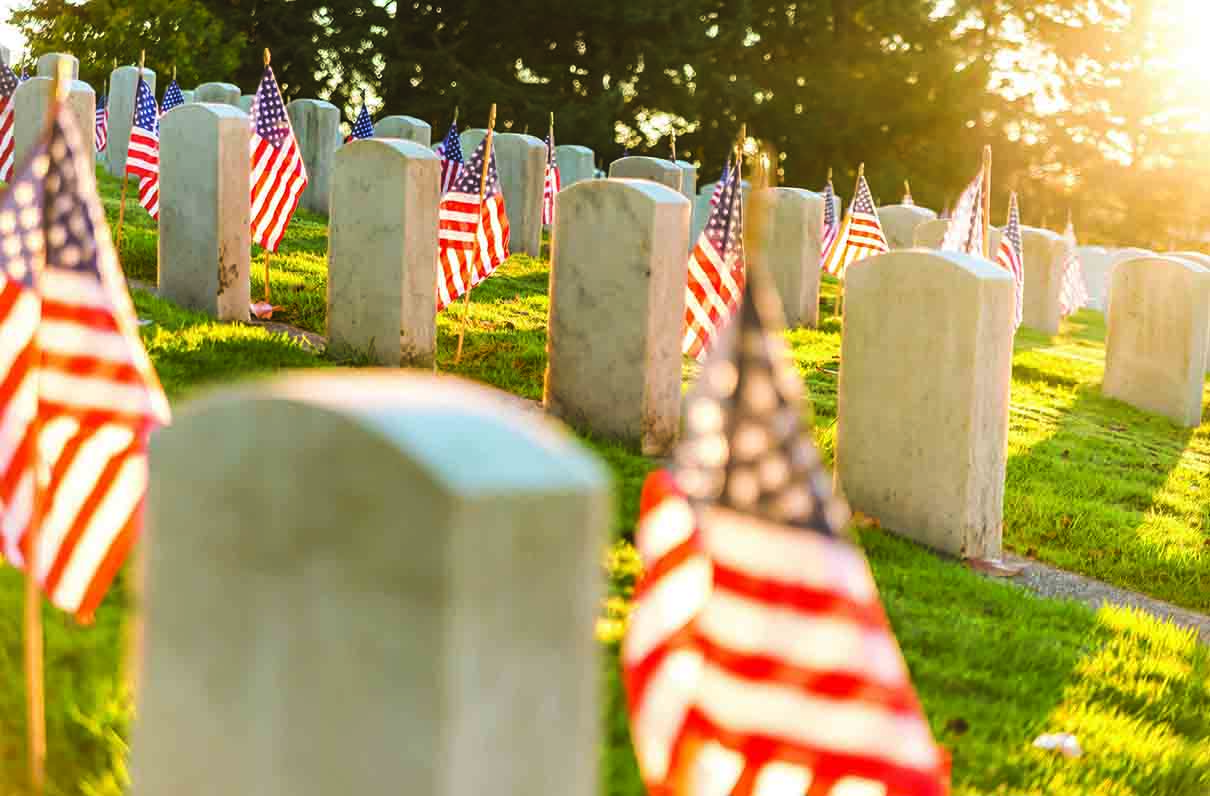
Susie Brodeur was living in Alaska with her 3- and 7-year old children when her husband, Air Force Maj. David Brodeur, was killed in an insider attack during a 2011 deployment to Afghanistan.
After Major Brodeur's death, Susie moved her family to her home state of Colorado, away from their military network in Alaska. She saved up to buy a house and has been raising her children as a single parent ever since.
Money can be tight, she says. With her children still coping with their dad's death, Brodeur is careful not to work too many hours. But the loss of her husband's income was a big adjustment, she says.
“It was scary not knowing where that next dollar [was] going to come from,” Brodeur says.
Military spouses who lose a servicemember on active duty and some spouses of retirees who die from service-connected illnesses or injuries receive a monthly benefit payment called Dependency and Indemnity Compensation (DIC) from the VA. (The tax-free payment comes out to about $1,258 per month.) Spouses also can receive Survivor Benefit Plan (SBP) annuity payments if their servicemember opted into the voluntary program at retirement, and spouses whose servicemember died while on active duty automatically receive SBP annuity payments.
But current law requires every dollar spouses receive in DIC benefits be deducted from their SBP annuity payment. That offset leaves most surviving spouses losing out on about $15,000 annually, in what's often referred to as the “widows tax.”
“The fact that the government is withholding that from us is really sad,” Brodeur says. “It really surprises me that they're not taking care of all families as well as they possibly can.”
After several years of advocacy from MOAA and The Military Coalition, Congress agreed and authorized a special allowance in 2008, which helps survivors recoup a portion of the offset. That Special Survivor Indemnity Allowance (SSIA) serves as a rebate, giving spouses of the fallen an additional $310 per month - equal to about 25 percent of what they lose from the SBP/DIC offset.
Now the future of that allowance is at risk too, since it's set to expire at the end of May 2018. Losing SSIA would leave families like Brodeur's down $3,720 annually.
MOAA urges lawmakers to take another look at the widows tax. Congress should end the SBP/DIC offset entirely - or at least extend and increase the SSIA to help make up the difference, says Col. Dan Merry, USAF (Ret), MOAA's vice president of Government Relations.
“The SBP/DIC offset is grossly unfair and should be repealed,” Merry says. “When military service causes the death of the servicemember, VA indemnity pay [DIC] should be paid in addition to the SBP annuity - not subtracted from it.”
An unfair burden
Like Brodeur, Traci Voelke is one of more than 60,000 military spouses who lose a portion of their SBP annuity each month.
When Voelke's husband, Army Maj. Paul Voelke, died in a 2012 vehicle accident in Afghanistan, her family lost not only a spouse and a father, but also their financial security.
“I lost my husband in the middle of his career, along with his income and earning potential,” she says. “Without the additional SBP, my monthly payments aren't even half of what he was earning.”
The VA created DIC in the 1950s so surviving spouses would be compensated for economic losses they suffered as a result of a veteran's death. About two decades later, DoD established SBP to ensure surviving dependents of military personnel who died in retirement would continue to have a reasonable income level.
Retirees can purchase SBP so their spouses continue getting a portion of their retirement after their death. But the payment often is canceled out by DIC, says Mary Craven, the wife of an Air Force officer who died from a service-connected illness in 1978.
“Why have two programs if one wipes out the other?” she asks. “The service caused his death. The service should pay extra for that, rather than cancelling part of the insurance he bought for me.”
On the active duty side, SBP serves as an income supplement for surviving spouses. That's important, says Voelke, because military spouses often are on the move, and many don't have steady careers.
“I was never able to build up my own pension in an organization long enough,” Voelke says. “My husband's pension is what we had relied upon for our retirement.”
Spouses like Brodeur, Voelke, and Craven often are shocked to learn their SBP annuities will be reduced by any money they receive from DIC. Six years after her husband's death, Brodeur's children now are 9 and 13. With no plans to remarry, Brodeur says she needs to be able to support not only her children but herself far into the future.
“I've been alone now for six years,” Brodeur says. “I have to do the job of two people and then some. It's not easy. When the government takes away the money from the lone survivor - the spouse - it really hurts.”
Those who gave all
Before Voelke's husband died, the U.S. Military Academy grad penned an op-ed in a local newspaper on Veterans Day about why he wanted to be an Army officer. He considered himself fortunate to serve alongside soldiers, sailors, airmen, and Marines.
“They are people who live selfless service,” Paul Voelke wrote. “They ask their families to sacrifice - spouses who have to put down roots every few years in a new place, make new friends, [and] learn new school systems and often do it alone.”
Brodeur says service to country was equally important to her husband, who graduated from the U.S. Air Force Academy in Colorado Springs, Colo.
“He was beyond the word 'patriotic,' ” she says.
Years after losing their husbands, Brodeur and Voelke continue to sacrifice. They've moved their families across the country alone and have faced tough choices as single parents about how to raise their children.
Brodeur has put off buying a new family car or taking care of certain home repairs since her husband died. She also has tapped into her savings account to cover some of her kids' education expenses.
“Money cannot buy happiness, but it can grant [my kids] opportunities to enjoy themselves, to wear nicer clothes, to be able to take vacations, and just be [kids],” Brodeur says.
Repealing the SBP/DIC offset “would take a little bit of the stress away. I would ask [lawmakers] to stop and look at the families,” Brodeur says. “Especially the young ones who have young children - think about what their future will be like after they lose a parent.”
Voelke says she is certain the SBP/DIC offset is an oversight, that it's not what Congress intended for the families of fallen military personnel.
“Following the advice of Abraham Lincoln 'to bind up the nation's wounds, to care for him who shall have borne the battle and for his widow, and his orphan,' we need to protect the families of those who gave all,” Voelke says.



